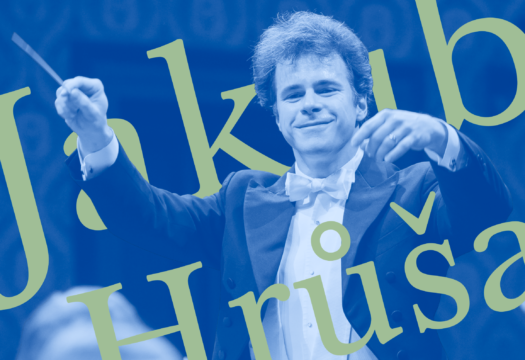“I built a cottage for Susan and myself, and made a gateway in the form of a Gothic arch, by setting up a whale’s jaw-bones,” wrote Nathaniel Hawthorne in his tale The Village Uncle. Arches of whale jaw-bones in an imaginary prolongation also intersect in Matouš Hejl’s Crossings. The core of the composition is formed by the mirroring, crossing and intersection of vocal lines, leading the orchestra to a large, albeit soft sound composed of a number of individually led voices.
At first glance, the mirroring is already evident in the orchestra’s arrangement. The composer prescribes placing groups of the first and second violins opposite each other. Four trumpeters are to be placed in pairs on opposite sides of the orchestra. Two of the five percussionists should be placed in the same way. The mutually reflecting lines, however, go mainly through the structure of the composition itself.
Crossings requires a full symphony orchestra, but it seldom perceives the groups of instruments as a whole. Wind instruments, usually with four players for each instrument, only rarely play in unison; in some passages, as many as 12 violins or 8 double basses each play their individual parts. Crossings does not create a large dynamic arc, working to a large extent with pianissimo, and its contrasts are encoded primarily in horizontal and vertical motion. The instruments touch extreme depths: the contrabassoon goes as low as subcontra Bb; this descend is fictitiously joined by trombones because this deepest possible orchestral tone is out of their range.
Matouš Hejl (born 1989) is a Czech composer. He studied at the Royal College of Music in Stockholm, the Academy of Performing Arts in Prague and the Berklee College of Music in Boston. In 2018 he won a contemporary music award, A Little Lower C4; and in 2016, the Karel Krautgartner Prize for the best composition for a jazz orchestra.


